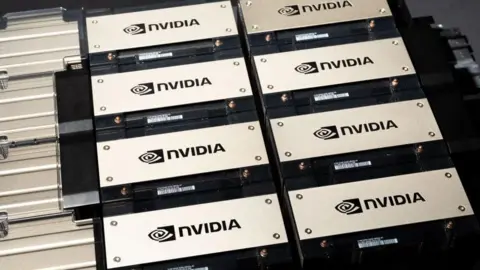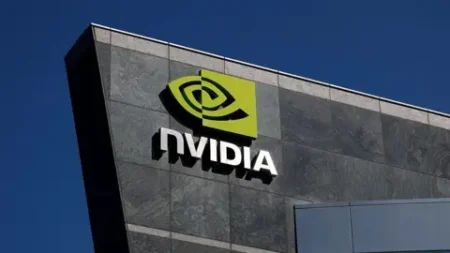In a significant legal development, two Chinese nationals have been arrested on charges of illicitly exporting advanced artificial intelligence (AI) chips from the United States to China, as reported by the U.S. Department of Justice (DOJ). This follows a revelation that over the last three years, a company identified as ALX Solutions, allegedly led by individuals named Chuan Geng and Shiwei Yang, was involved in exporting these AI chips without the necessary licenses required for such transactions.
The DOJ has specifically highlighted that these shipments involved high-value items such as Nvidia’s H100 graphics processing units (GPUs). The GPUs in question have increasingly become focal points of U.S. export controls aimed at preventing China from obtaining cutting-edge technology that could potentially enhance its military or surveillance capabilities. Nvidia responded to the situation by emphasizing that attempts to sidestep legal export processes, such as smuggling, are inherently futile and will not be tolerated.
ALX Solutions was reportedly based in California and had a small group of employees, with Geng managing finances and Yang serving as secretary; the chief executive’s identity remains undisclosed in court documentation. Both individuals allegedly had complete decision-making authority and coordination power over the shipments, with Geng possessing permanent residency in California while Yang was described as having overstayed a visa.
Further investigations unveiled that ALX Solutions facilitated multiple shipments from the U.S. to various shipping companies in Singapore and Malaysia between October 2022 and July 2025. Singapore and Malaysia are notoriously known as transit hubs frequently exploited to obscure illegal shipments destined for China. It was noted that ALX Solutions never directly received payments from these shipping firms; instead, the company was compensated by firms located in Hong Kong and mainland China. For instance, a notable payment of $1 million from a Chinese-based company purportedly occurred in January 2024.
In December of the previous year, ALX attempted to export computing chips, including Nvidia’s H100 and GeForce RTX 4090 GPUs, but were flagged by U.S. customs during the inspection process. Documentation examined by the DOJ confirmed that neither ALX Solutions nor its operators had secured the required licenses from the Commerce Department necessary for such exports.
One particular invoice from 2023 valued at over $28.4 million illustrated a transaction where ALX claimed the GPUs were intended for a customer in Singapore. However, U.S. export control officers in Singapore were unable to confirm the arrival of the chips in that country, and the customer appeared fictitious, leading to suspicions that the products were redirected to different end-users, potentially within China.
Super Micro Computer, identified as a supplier of Nvidia chips, did not respond promptly to inquiries from the BBC but expressed a commitment to adhering to U.S. export regulations, asserting their intention to cooperate with any investigations related to the case.
The arrests of Yang and Geng mark a serious offense that, if convicted, could lead to a prison sentence of up to 20 years. Both individuals made their initial appearances in federal court in Los Angeles shortly after their arrests, underscoring the gravity of the charges against them.
Interestingly, ALX Solutions appears not to have a dedicated website, according to court findings, though a subsidiary named ALX-Cloud specializes in providing cloud computing services. The broader implications of this case could resonate within ongoing U.S.-China trade tensions as technology and military capabilities continue to be contentious points of rivalry.
As this situation unfolds, it may draw public and media scrutiny about the intricacies of technology exports, compliance measures, and the ongoing battle to regulate sensitive technological advancements, particularly against a backdrop of national security concerns.











